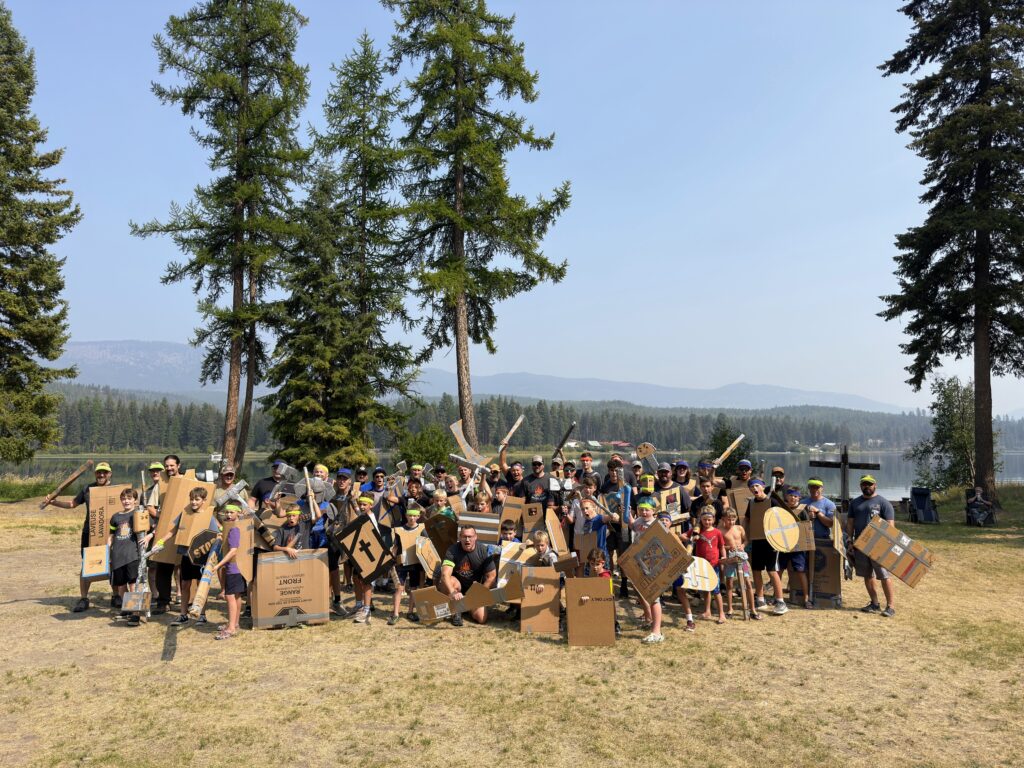Why we need to get away to get together
A week ago, I hosted the fourth annual Man Camp, a gathering of dads and sons to work, play, and eat together. Our church has a lakefront camp facility with a lodge, and that’s where we’ve hosted it. Together with a few other guys, we’ve maintained a simple itinerary that provides a good balance of activities and downtime. This year, over 70 men, boys, and grandpas attended.
Why Man Camp exists: I started it because I wanted to connect with other dads who are like me, trying to do their best to raise sons. I found that it was hard to get to know anyone at church because church has become just another activity on our already overpopulated schedules. I knew that it was going to take getting away from the normal routine to slow down and actually get to know people.
Being the one to seek out community is outside of my comfort zone. I don’t thrive in groups. It would be easy to label myself as an introvert. But I’ve learned that waiting for someone else to create the community I need means it probably won’t happen.
The beauty of simplicity: The great part about putting on a weekend-long event for a bunch of men and boys is that it doesn’t take much prep or planning to pull it off. Our needs as men are simple: food and shelter.
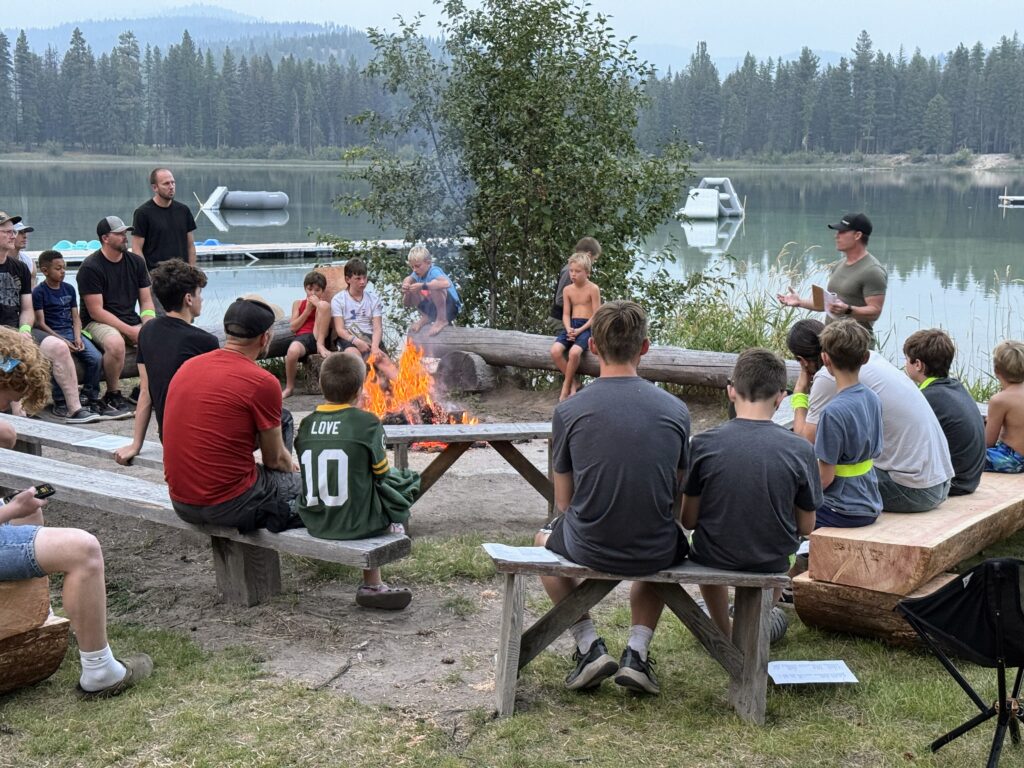
Up until this year, I thought that Man Camp should be for anyone at any church or better yet, a tool to invite other men who might not want to go to church. What I learned this year is just how disconnected we can be even within a church body. The women at a church already do a decent job getting together, but men struggle to find community at church as most church services and ministries are directed around the needs of women.
The connection crisis: Romans 12:4-5 is famously quoted as the picture of what the body of Christ should look like in the church. But we live in changing times where we are connected in so many ways yet never having felt more disconnected. There isn’t any consistency in our communities anymore. We don’t know our neighbors, people come and go at work, our kids’ teams consist of different families every season, and we’re in and out of church on Sunday on our way to the next activity.
We think we are keeping up with everybody on social media, but we’re simply watching each other’s lives go by rather than participating in life together.
The magic happens in the mundane: My big aha moment after Man Camp this year was realizing how every aspect of the weekend provided connection. It’s a church event, so of course there is worship and some group discussion, but the real connection comes from working, playing, and eating together.
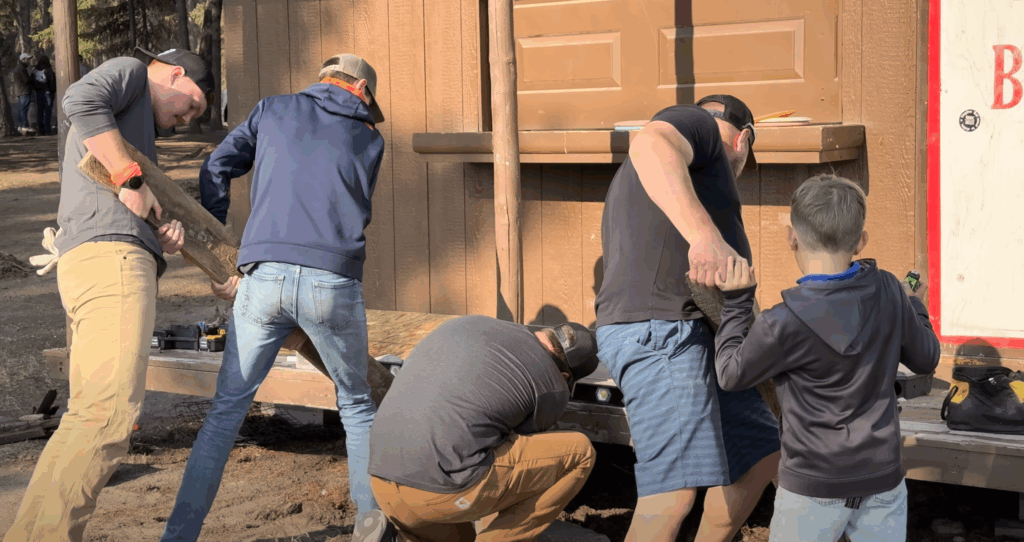
Since our church owns the grounds, we spend 2-3 hours improving it. Guys were rebuilding a set of rotted-out steps and taking care of about a dozen other handyman-type tasks all the while talking. We have two games that have become famous with the boys, but they bring out the competitive nature in dads. After the bashing around comes conversation.
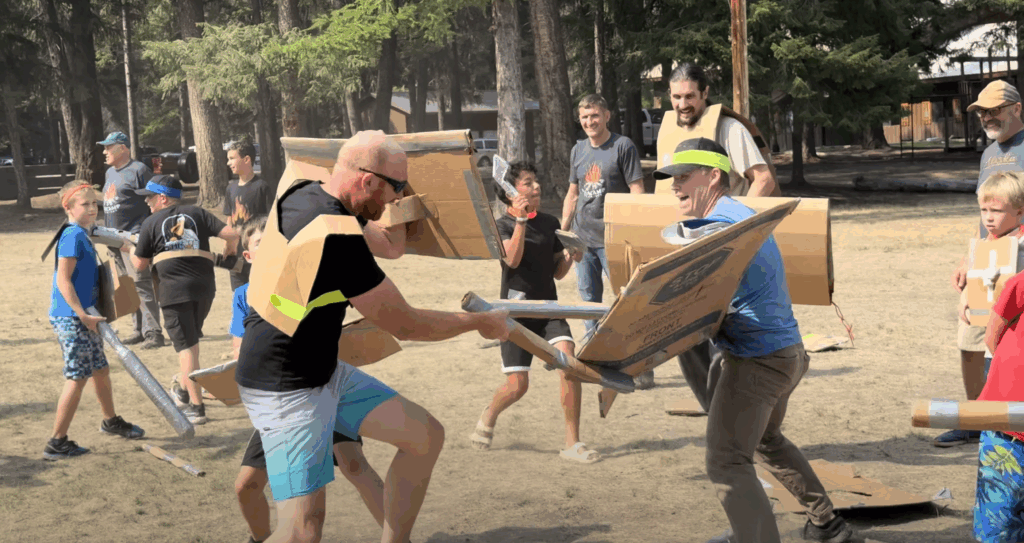
One of our games involves trying to crack a raw egg that’s been duct-taped to each player’s chest with a cardboard weapon that you crafted the night before. This year was the first without a bloody nose or busted lip. It looks like total chaos, but everybody loves it, especially the kids.
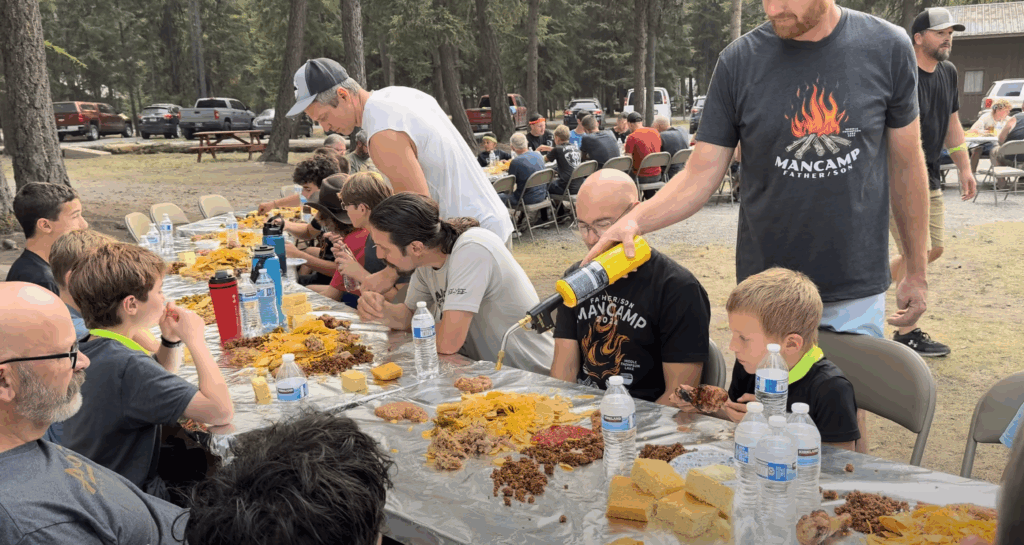
Saturday evening dinner is outside at covered tables where we eat with our hands and then continue conversations at the campfire late into the night.
The bigger picture: It takes getting away from the busy and disconnected lives we’ve created for ourselves to spend enough time around others to get to know them. We already have in common attending the same church.
I believe that there will be an entire industry around events created specifically for people to connect and make friends. In an attempt to fill our schedules with “good” things, we have made it impossible to create relationships with any depth to them. Even curated events can only take us so far. If you want true friendships, time is required. People will have to decide to pull back from the disconnected array of activities and intentionally decide to do things together. Friendships require familiarity.
What the research tells us: Last year I read a book titled “Made for People” by Justin Whitmel Early (Amazon Affiliate Link). I think I have quoted it in other posts I’ve written. It answers many questions about why we are struggling with our purpose and identity in society today and why we all feel so alone. We desire to be known by others. While this is scary because deep down there are parts of ourselves that we don’t want known, we must eventually overcome that and allow people to know us completely.
Being known is scary. I have shared my entire backstory with a few others and it was terrifying. You don’t know how someone will respond and it could likely change the dynamic of your friendship or perhaps end it. But with our baggage packed tightly away behind closed doors, can we ever feel like we have true friends who know us? Can we ever have people in our lives that know us well enough to see when we are struggling before there is a mess to clean up?
Cancel culture has certainly scared us, but those who end up being cancelled or called out are those who kept everything hidden. I say all of this as someone who has only recently understood why this is so important.
I have found that in order to be known by others, I must first make the effort to know them. He says, “…isolation is death. Spiritually and physically.”
I used to imagine living out in the middle of nowhere as being ideal for me. However, as I have gotten older, I am aware that isolation is the worst thing I can allow to happen to me. When I isolate, it is a result of how I am feeling, not a desire for anything good.
The church’s challenge: If my desire is to be Christlike, then I must remember that “holiness is not a condition into which we drift; neither is friendship.” It takes fighting the wind of culture and pressing towards others. “We tend to gather in front of glowing screens to relax (alone) rather than in front of glowing fires to relax (together.)”
“A friend knows your trauma, your shame, your worst secrets, and says the words you desperately need to hear: ‘I know you. I understand you. And I love you anyway.'”
If the church is ever going to be a place where true community takes place, it needs to rethink the way it’s doing things. The church is systematically removing opportunities for community in exchange for streamlining processes by outsourcing even the simplest of tasks because it’s easier to pay somebody than it is to build relationships that lead to side-by-side service. That happens organically at Man Camp and on a shoestring budget.
Building my own community: I’ve been thinking about my own community a lot. I’m actively connecting with other dads who have kids close to the age of mine to build friendships. We’re getting together as families to eat and play together. I hope to find ways in which we can serve together as well.
It is through these activities that we build familiarity and begin to truly know each other. It’s not easy and certainly doesn’t come natural to us anymore, but once in it, the feeling of having community and not being alone provides a peace that can’t be bought or found in a one-off event.
Now I am thinking about how an event like this can help kick-start community with not only my church but in other churches that are finding themselves disconnected.
The question for you: What would it look like to intentionally create space for real connection in your community? Sometimes the deepest friendships start shoulder to shoulder while accomplishing a mission together.

